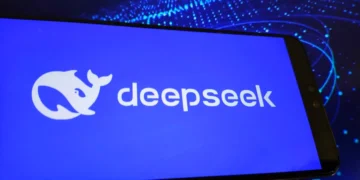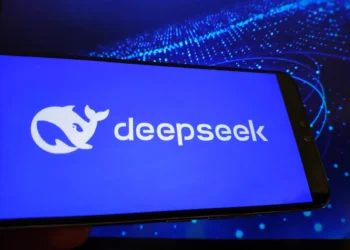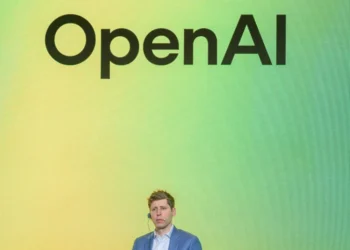
Meta CEO Mark Zuckerberg, currently on a tour of Asian countries, expressed during a meeting with South Korean President Yoon Suk Yeol on Thursday Meta’s interest in enhancing its collaboration with Samsung Electronics on AI chips. This move aims to address geopolitical risks associated with Taiwan, where TSMC, the world’s largest contract chip manufacturer, is headquartered.
In discussions with President Yoon, Zuckerberg also explored avenues for expanding cooperation in the fields of artificial intelligence and extended reality industries, as confirmed by a South Korean presidential official in a briefing today.
Recognizing the significance of AI processors and the imperative to advance technologies surpassing current chip capabilities, Meta is prioritizing investment in this area for the future of its social media and hardware devices businesses.
Zuckerberg reportedly held talks with Samsung executives, including Samsung executive chairman Jay Y. Lee, on Wednesday evening to explore potential collaborations on AI chips, semiconductors, and extended reality. When approached for comment on Zuckerberg’s meeting, a Samsung spokesperson declined to provide further information to TechCrunch.
Meanwhile, in response to escalating tensions in the U.S.-China tech conflict, TSMC has initiated steps to diversify its supply chains by establishing its first chip fabrication plant in Japan. This move underscores the growing importance of secure semiconductor production. Japan Advanced Semiconductor Manufacturing (JASM), a subsidiary of TSMC, initiated the construction process of its first chip plant in April 2022 and is poised to commence construction on a second plant by the end of 2024.
During his visit to Japan, Zuckerberg also met with Prime Minister Fumio Kishida on Tuesday to discuss collaboration in AI and semiconductors. Japan, lagging behind Taiwan and South Korea by approximately 10 years in next-generation chip technology, is actively seeking to revitalize its semiconductor industry.
Zuckerberg’s tour coincides with a significant global competition in the AI chip arena. While Nvidia maintains its dominance in this market worldwide, there is a notable opportunity for countries with strong processor backgrounds to reignite their innovative capacities. This trend aligns with the aspirations of tech companies invested in AI businesses, eager to reduce their reliance on Nvidia. Consequently, major players such as Microsoft, OpenAI, Amazon, and Google are actively seeking AI chips to bolster their AI initiatives.
To mitigate dependence on external suppliers, Meta has intensified its efforts to secure AI chips, even developing its own in-house AI chip called Artemis tailored for its data centers. This strategic move reflects the broader industry trend of tech giants aiming to diversify their chip sources and enhance their AI capabilities.
Meta’s ambition on XR: Meeting with LG
When questioned by TechCrunch about the specifics of their discussion, an LG Electronics spokesperson noted that LG and Meta had been collaborating closely prior to the recent top management meeting. They expressed anticipation for further opportunities without divulging details regarding financial terms or the precise products involved in the collaboration.
Additionally, the spokesperson mentioned comments from LG’s CEO Cho, who stated to local reporters post-meeting that the top management of both companies discussed the strategic directions and timelines of their collaboration.
From LG’s perspective, the Korean tech giant aims to integrate Meta’s extended reality (XR) platform into LG’s content and consumer devices, such as its TVs, to establish a distinctive ecosystem within LG’s newly established XR business segment.
While LG, like many other tech firms, is emphasizing its efforts in AI, it has yet to make significant strides in this field. Collaborating with Meta provides LG an opportunity to partner with a company that has made substantial progress in AI without posing direct competition to LG’s broader consumer electronics business. Moreover, it serves to counterbalance the dominance of other major players in the AI space like Google and OpenAI.
Specifically, LG expressed interest in Meta’s advanced technology demonstrations, particularly focusing on Meta’s large language models and their potential for on-device AI integration. This interest was evident as they experienced Meta’s recently launched Quest 3 headset and Ray-Ban Meta smart glasses.
Following the global shutdown of its struggling mobile business in April 2021, LG redirected its focus to growth areas such as smart homes, connected devices, IoT, EV components, robotics, and AI platforms.
In late November, LG announced the establishment of an extended reality (XR) team within its home entertainment division, as part of organizational reshuffling to accelerate the development of an XR device slated for release in 2025.
A Meta spokesperson expressed excitement about LG’s commitment to building the next generation of XR devices, emphasizing Meta’s vision for a more open ecosystem reliant on collaboration among innovative industry leaders. They look forward to their partnership with LG resulting in expanded opportunities for people worldwide to benefit from future computing platforms.















































